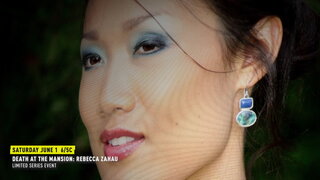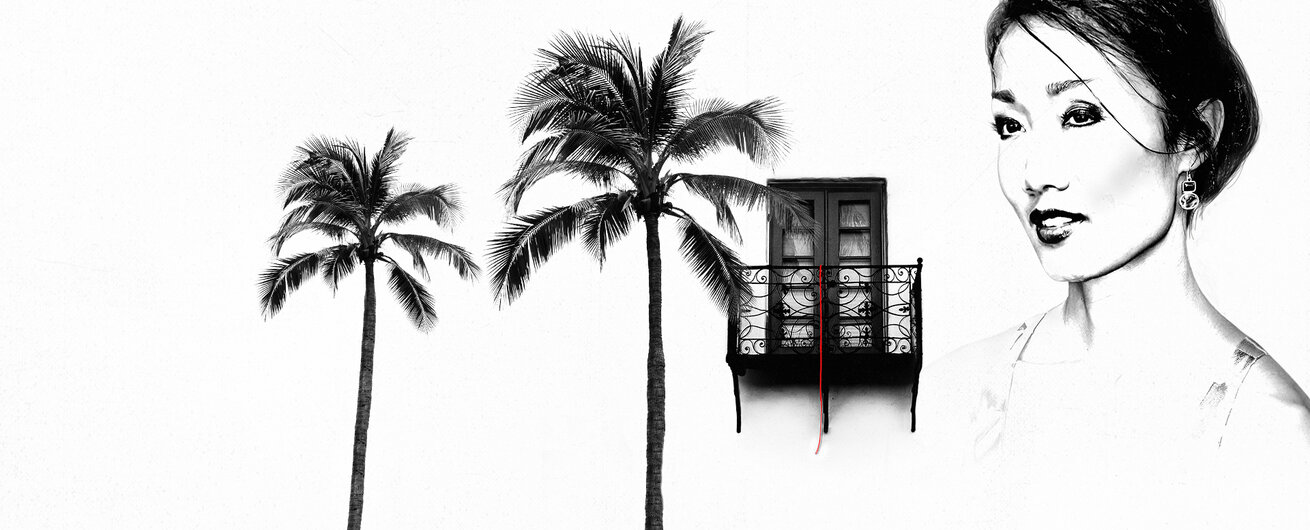Create a free profile to get unlimited access to exclusive videos, breaking news, sweepstakes, and more!
Was Rebecca Zahau’s Death An Asian Honor Suicide?
While an expert in Asian shame believes it’s possible Rebecca Zahau may have chosen to end her life after feeling a wave of tremendous guilt, others don’t believe the vibrant 32-year-old died by her own hand.
Did Rebecca Zahau’s cultural background play a role in her death?
Some have suggested that Zahau may have taken her own life as part of an honor suicide — an act with deep roots in Asian cultures, intended to rid oneself of perceived shame by ending his or her life.
The days leading up to the 32-year-old’s death were tumultuous, and could have left Zahau, a Burmese immigrant, with a deep sense of guilt over the tragic events that transpired just before she died.
Her boyfriend’s 6-year-old son, Max Shacknai, was gravely injured after falling over a second-story balcony while in her care, leaving him with critical injuries that would claim his life days later.
But was the accident and Zahau’s cultural attitude toward shame enough to push her over the edge and cause her to take her own life?
What Is An Honor Suicide?
The concept of honor suicide dates back centuries in Asian cultures and differs from an honor killing. Amnesty International describes an honor killing as violence — most often against women — at the hands of a family member to restore a family’s “honor” after a perceived cultural infraction. An honor suicide is carried out by the individual who believes they committed the infraction.
In Asian cultures, some believe that killing themselves will restore a “sense of honor back to the family” after committing an act they feel may have brought shame to the family, according to an article in Psychology Today.
“Present-day Asians, regardless of their differences in ethnicities, languages and religions, are still rooted in the shared values of collectivism, saving face, honor and loyalty to one's family and culture,” the article’s author, Sam Louie wrote.
Louie told Oxygen that in Asian cultures those who do something deemed “negative by society standards” often either suffer in silence or break out of the shame they feel by trying to reclaim their honor.
“There needs to be a way to release that shame,” he said. “Otherwise, you’re going to [be] deeply embroiled in it, either with mental health conditions with depression, anxiety and, you know, worst case scenario, suicide, as a means to atone for that level of disgracing your family and or your ancestors.”
The concept can be traced back to 12th century Japan, when samurai would commit seppuku, a ritual in which one, often publicly, disembowels himself after believing he had brought shame to himself or others, The Los Angeles Times reports.
While modern-day examples are typically less gruesome, Louie told Oxygen that Asian shame continues to be a powerful force in today’s world.
Asian shame can be as mild as somebody not living up to their parent’s expectations in terms of grades or relationships, or can be more extreme, in the case of an addiction or committing a crime, Louie said.
“We have behavioral shame,” he said. “You may have done something like a scandal, like you‘ve been in an affair, all these different layers, so many different levels of shame that maybe most people … in the West could feel. But in East Asian context, the shame is more than yourself; you are potentially dishonoring your immediate … family.”
Could Zahau’s Case Have Been An Honor Suicide?
Zahau had been home with Max Shacknai the day he plunged over the family’s second-story balcony — leaving Zahau distraught and visibly shaken by the grave injuries the boy suffered.
But did a feeling of guilt after Max’s tragic fall later drive her to take her own life?
Shortly after Zahau was found dead, her boyfriend, Jonah Shacknai, suggested to police that his girlfriend may have been experiencing culture-related shame due to guilt over Max’s accident.
“She comes from a true Asian background,” he said in a police interview from July 13, 2011, played in an episode of “Death at the Mansion: The Case of Rebecca Zahau,” airing on Oxygen. “And they just look at things differently in terms of responsibility. I can’t help but think that she felt responsible because she was in the house.”
Louie believes it is possible that Zahau took her own life in the days after Max’s tragic accident, and said she may have been driven to the act by guilt she felt after the accident.
“When I look at Rebecca Zahau’s death, I really see what I think is the cultural shame playing into potentially her killing herself,” Louie said. “And the reason why I say this is because there’s so much tremendous personal shame of having Max accident happen underneath her care, but also the collective shame of knowing this could potentially haunt her, her family and her dead ancestors, going back generations.”
Zahau may have also been afraid of the repercussions the accident could have had on her relationship with Max’s father, he said.
“You combine that with the potential fear, or the perceived fear … of losing her relationship with Jonah, [and] I think those two losses, compounded with her backdrop in Asian Culture, may have been too much for her to bear,” Louie said.
The concept of Asian shame could resonate with someone with a Burmese background, like Zahau.
“It would because the Burmese culture, even though they make up more than 130 different ethnic groups, they still have very common core philosophical or cultural values in terms of what they esteem, and part of that is saving face,” Louie said on the upcoming series.
However, Louie said being found naked would have been “very shameful” in Asian cultures, and could be one factor pointing away from an Asian honor suicide.
“I wouldn’t understand why she would disrobe,” he said.
The Case Against A Shame-Based Suicide
Others have pointed to Zahau’s strong Christian faith as a reason she wouldn’t have taken her own life.
“Rebecca and I, we grew up as Christian, and our parents raised us to stay glued in our faith,” her sister, Mary Zahau-Loehner, told Oxygen.
Zahau-Loehner also doesn’t believe her sister would have ever taken her own life in such a public way while she was naked.
“Just the fact that her family would have seen her that way — she would have never done it,” she said.
Criminal psychologist Eric Hickey also was puzzled by the way Jonah’s brother, Adam Shacknai, reportedly found Zahau. He told police he found the 32-year-old hanging naked from the outdoor balcony of the home, with her hands and feet bound and a gag in her mouth.
“If a person is going to kill themselves, a woman’s going to kill herself because she feels badly about something, she’s not going to gag herself,” Hickey told Oxygen. “It doesn’t make any sense at all. They wouldn’t do that. This was a staged crime scene to me.”
Hickey said his examination of Zahau led him to believe that she was a “well-grounded” person who wouldn’t have suddenly chosen to end her life after an accident.
“She didn’t have a perfect life,” Hickey said. “She made some mistakes throughout her life. But she was finding her way, and she was very self-disciplined.”
Hickey went on to assess Zahau as a “very kind person” without any previous issues with depression or suicidal thoughts.
“There's nothing here that would indicate to me that this is a woman who would snap suddenly because she heard bad news,” he said. “That doesn’t make any sense as an investigator.”
Zahau’s family also contends that she didn’t blame herself for Max’s injury — thus raising some issues with the honor suicide theory.
“She was sad, of course, because she loved the boy,” Zahau’s younger sister Snowem Horwath told KNSD in 2013. “She loved Max, but she never, ever said anything or felt responsible for his fall.”
Without concrete evidence, it’s difficult to know exactly what the 32-year-old may have been thinking in her final hours, leaving her death a lingering mystery.
“Based on what we know about this case today, and based on the information that we have, it is impossible for us to form a solid conclusion about the death of Rebecca Zahau, because most of the victimology is missing, and without that foundational piece of victimology, we cannot form a conclusive answer in this case,” Forensic Criminologist Laura Pettler told Oxygen. “So, we must leave it undetermined.”





























